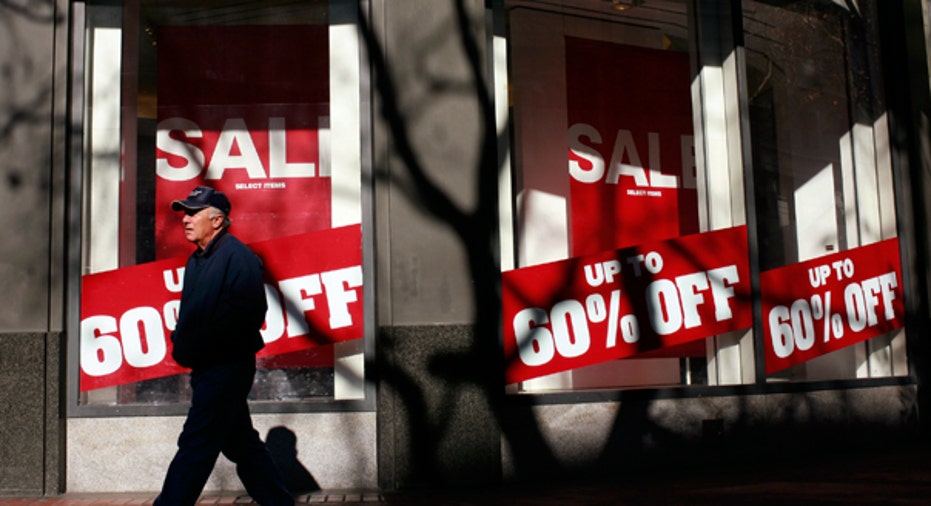Do You Need Insurance for Black Friday?

You know the routine. Right after the pie is served and Thanksgiving officially begins to shift from feasting to forced family fraternizing, you begin the Black Friday mental checklist. Food and water? Cellphone charged? A map with a prioritized game plan? Health insurance and car insurance cards handy, just in case things get rough?
You're not backpacking the Appalachian Trail or driving across the desert, you assure your family as you strap up and head for the door. You're going shopping, and it's what the pilgrims would have wanted.
Black Friday is now a post-turkey ritual, as hordes of Americans do their annual patriotic duty for the U.S. economy earlier and on a bigger scale than ever before. The National Retail Federation found a record 226 million shoppers spent an estimated $52.4 billion over Thanksgiving weekend in 2011.
Needless to say, this kind of shopping is serious business, so thinking about insurance is not such a crazy idea. Though it's not likely you'll be pepper-sprayed in a store aisle, as one woman did to fellow shoppers at a Los Angeles Wal-Mart last year, there are a number of risks when bargain hunting in the wilds of Black Friday. You'll need insurance to provide protection from the biggest threats.
(Parking) Lots of Risk
Sometime during the eighth frustrating lap around the mall parking lot looking for a spot, many of us might begin to wonder how perceptive family members would be if we just regifted to them a few dust-catchers from the living room this year. It's no wonder that much of the risk from Black Friday shopping results from the chaos in the parking lot.
"We're all familiar with people hovering around looking for parking spots, so it certainly makes sense that eventually some of those people are going to run into one another," says Dick Luedke, a spokesman for State Farm.
He says the liability portion of auto insurance policies almost always will cover any injuries or vehicular damage you might cause in a retail parking lot, same as on a roadway.
Perhaps a more likely parking lot concern is theft, particularly if you're a bonehead and leave your shopping haul in plain view in your car. Homeowners insurance policies generally cover items stolen out of your vehicle, provided they're not always in the car (as would be the case with sunglasses or CDs) and your out-of-pocket deductible isn't too high.
"If you choose a deductible of $500, you are basically saying that losing $500 is not going to create financial hardship for you," Luedke says.
Cleanup on Every Aisle
"People think about walking as a very simple, easy procedure," says Brett Burlison, an injury attorney in San Francisco. "It actually isn't. When you walk into a store, they're spending millions of dollars figuring out the best way to keep your attention, and it isn't on the ground."
A distracted, hapless shopper just looking for up to 80% off "one day only" can be seriously injured by a slippery store floor, falling merchandise or a raging stampede of bargain hunters.
Though the particulars vary state by state, in general if a retailer is found to have been neglectful of a foreseeable risk that resulted in a shopper's injury, that consumer may be entitled to financial compensation. Though one's health insurance will cover the treatment, one cannot simply begin fantasizing about how many marked-down Blu-ray players the settlement will buy, because it's not necessarily a windfall, Burlison explains.
"If you do collect from the premises owner and you have insurance, you're going to have to reimburse that health insurance company," he says. "Many people don't understand that, but we work very hard to negotiate ??? to make sure there's plenty of money to go around."
Identity Theft: Your Own Worst Enemy
You mean you didn't intend to purchase half of what's in this month's SkyMall catalog?
More than 11.6 million consumers were defrauded through identity theft last year as cases rose 13% over 2010, according to a study by Javelin Strategy & Research. Perhaps what's more disturbing is that security site ID Watchdog says even if retailers recognize that customer credit card numbers and other data are vulnerable on Black Friday and the online-shopping "Cyber Monday" that follows, only 21% of merchants are prepared to notify victims if identities are stolen.
So unless you have a sixth sense for unauthorized charges, what are you to do?
"Nearly half of identity theft cases are the result of a lost or stolen physical item, such as a wallet or credit card," says Lynne McChristian, a spokeswoman for the Insurance Information Institute, an industry group. "That just proves that whether you shop at the mall or online, you need to be mindful."
That means safeguarding your wallet, checking your financial statements frequently during the holiday season and, for online shopping, making sure your anti-virus and anti-spyware software is updated. McChristian adds that some homeowners and renters insurance policies include identity theft coverage, though often only for losses of up to $200 in cash and $50 on credit cards.
And, attention Black Friday shoppers: Identity theft stand-alone insurance policies are available and can run about $25 to $50 annually. But instead of covering losses, they typically reimburse only the expenses you might rack up trying to restore your good name. Those costs might include phone charges, lost wages, notary services, certified-mailing expenses and, sometimes, attorney fees.
Copyright 2012, Bankrate Inc.



















